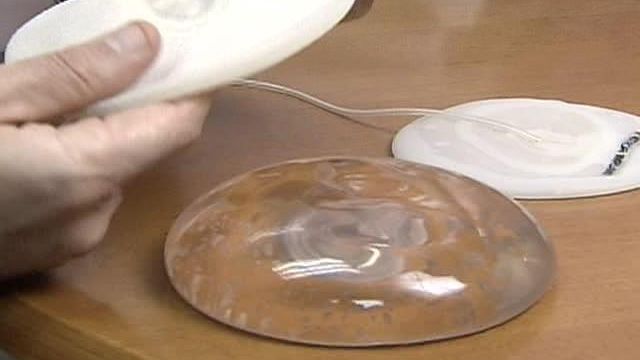Health Team
Breast Implants as Health Options, Not Cosmetics
Silicone implants are back from a federally imposes ban, and they offer a health option for some women faced with difficult choices.
Posted — UpdatedDURHAM, N.C. — Silicone breast implants are back.
Last year, the FDA declared them safe – after a 14-year moratorium prompted by health concerns. Now, more women want them, and not just for cosmetic reasons.
Alicia Altmueller, 36, said she would never have considered a breast implant. That was before she tested positive for a gene mutation linked to breast cancer, however.
“It gave me the possibility of having breast cancer – an 86 percent chance – and then having it reoccur over and over,” Altmueller said.
The thought tortured her for a year.
She said she kept wondering, “Is today the day that the cancer's going to show up? Is today the day?” So, she decided to tackle the risk on her own terms.
She had a double mastectomy – and planned breast-reconstruction surgery with Dr. Michael Zenn, a Duke plastic surgeon.
She had a choice between saline or silicone implants.
The FDA had placed a moratorium on silicone implants in 1992 because of concerns the silicone leaked in some women and caused health problems. However, research showed the implants do not cause disease, and the FDA cleared them for use.
What’s more, the newer type of silicone is safer because it won't leak.
“These implants, if they were actually cut open, they would actually be 2 solid pieces,” Zenn said. “The density of the implant itself is almost identical to tissue, the natural tissue. So when they're inside, they feel like natural tissue.”
Saline implants – a silicone shell filled with salt water – is firmer and the edges might be visible.
For breast reconstruction, the feel is even more important than it is for augmentation. With augmentation, the implant goes under existing breast tissue. With reconstruction, the implant is beneath a layer of muscle and skin.
Altmueller chose silicone.
“You know, you want what you had before you knew all this. It feels the same. It looks the same,” she said. And sometimes, she said, she forgets the implants are there.
Though the FDA re-approved silicone implants for use last year, studies of about 40,000 women will continue over the next 10 years.
• Credits
Copyright 2024 by Capitol Broadcasting Company. All rights reserved. This material may not be published, broadcast, rewritten or redistributed.





